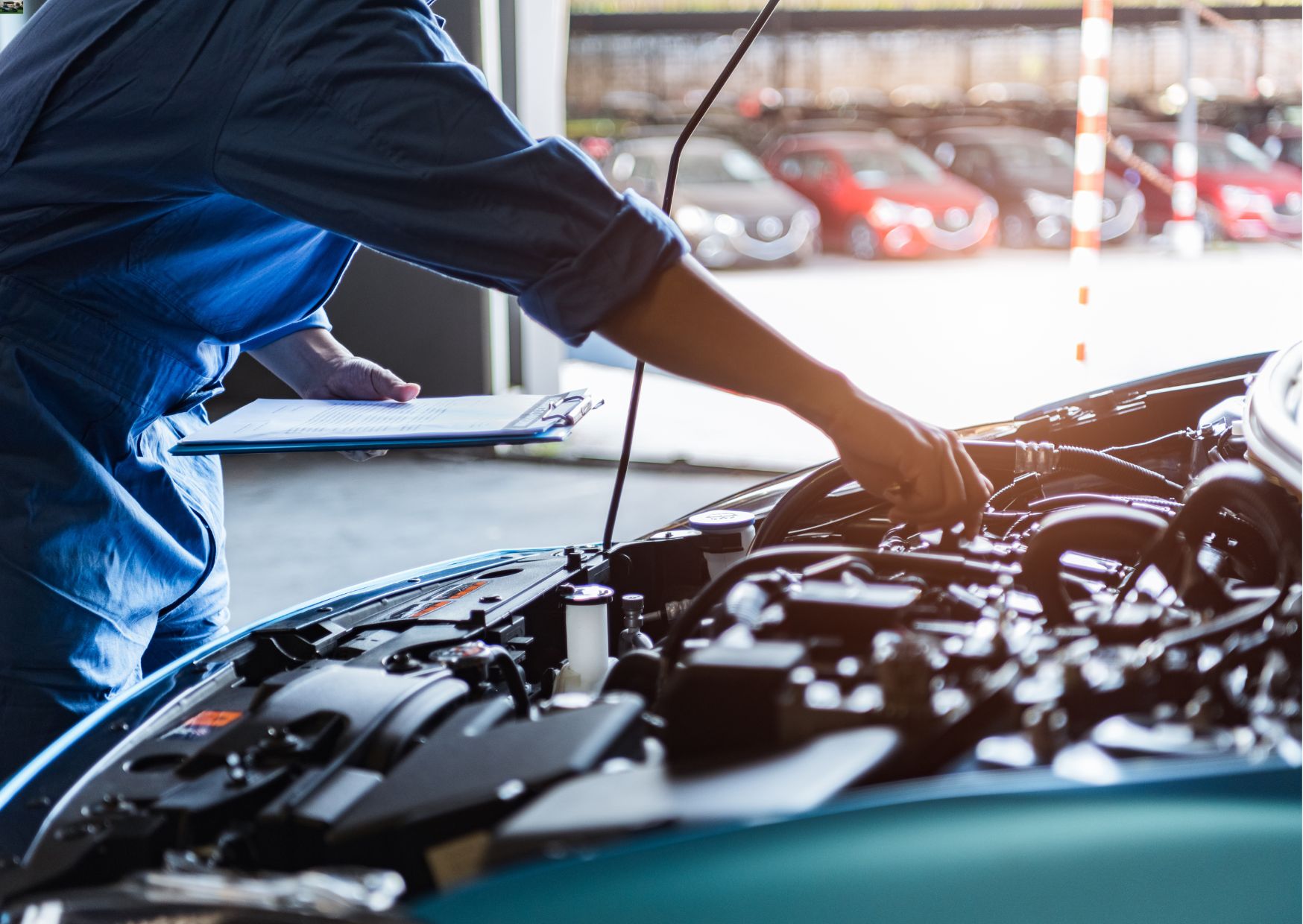Become a car dealer plays a significant role in the automotive sector by procuring new and used vehicles for customers. They assist buyers in selecting vehicles, discuss purchase terms, and handle documentation.

What are the Main Types of Car Dealers
Car dealerships can be categorized into four main types: new car dealers exclusively sell brand-new vehicles with manufacturer warranties; used car dealers specialize in pre-owned vehicles, offering financing and warranties; franchise car dealers sell new vehicles from specific brands with manufacturer support; and independent car dealers offer a variety of new and used vehicles without brand affiliation, providing flexibility in pricing and services.
New Car Dealers
New Car Dealers are authorised by manufacturers to sell brand-new vehicles directly to customers. They operate under agreements with specific brands, offering the latest models and often providing manufacturer warranties and service support. These dealerships are crucial for consumers seeking new vehicles, ensuring access to the latest technology, safety features, and factory-backed guarantees.
Role and Key Responsibilities:
New-car dealerships sell brand-new vehicles directly from manufacturers. They represent or act as retailers for specific car brands, maintaining an inventory of the latest models offered by these companies. Primarily, they handle promotions and sales of these vehicles.
Used Car Dealers
Used Car Dealers are specialise in selling pre-owned vehicles. These dealerships acquire used cars through trade-ins, auctions, and direct purchases from individuals. They typically offer a variety of makes and models at different price points, catering to customers looking for affordable alternatives to new vehicles. Used car dealerships often provide services such as financing, warranties, and vehicle inspections to assure customers of the quality and reliability of their inventory.
Role and Key Responsibilities:
Used car dealerships specialise in selling previously owned vehicles acquired through trade-ins, auctions, and direct purchases. They prepare these cars for sale by conducting inspections, repairs, and cosmetic enhancements. Offering a variety of makes and models at different price points, they cater to customers seeking affordable alternatives to new vehicles. Services such as financing, warranties, and vehicle history reports are commonly provided to ensure customer confidence in their purchases.
Franchise Car Dealers
Franchise Car Dealers are authorised retailers for specific automotive brands or manufacturers. These dealerships operate under contractual agreements with the manufacturers to sell new vehicles exclusively from their affiliated brand. They typically adhere to manufacturer standards for sales, service, and customer care, offering brand-specific warranties and support. Franchise car dealerships are integral in providing customers access to the latest models, manufacturer promotions, and factory-backed services within the automotive industry.
Role and Key Responsibilities:
A franchise car dealer is an individual in partnership with a manufacturer who sells vehicles of their brand. Operating under the brand’s name, they must adhere to the manufacturer’s rules and regulations.
Independent Car Dealers
Independent Car Dealers operate without direct affiliation to a specific automotive manufacturer. These dealerships sell both new and used vehicles from various brands, offering a wide selection to customers. Unlike franchise dealerships, independent dealers are not bound by exclusive agreements with manufacturers and typically have more flexibility in pricing and vehicle selection. They often provide additional services such as financing options, warranties, and maintenance services to attract and retain customers.
Role and Key Responsibilities:
Independent car dealers do not belong to any particular brand or manufacturer and typically do not focus on a single brand of motor vehicles. This independence gives them greater flexibility in sourcing stock and selling vehicles, often offering a wide variety of makes and models.
What does a Car Dealer do?
Car dealers are responsible for sourcing vehicles through auctions and trade-ins, managing inventory with strategic pricing, marketing their stock, negotiating sales, handling financing and paperwork, and providing ongoing customer support to ensure a smooth buying experience.
Sourcing and Purchasing Vehicles
Car dealers source vehicles from manufacturers, auctions, or trade-ins. They ensure that all key systems are working fine and determine the recommended price for each vehicle before making the purchase.
Marketing and Advertising Inventory
Car dealers actively promote their inventory for sale through various channels such as website listings, social media platforms, and other marketing avenues. By utilising these mediums, they aim to attract potential buyers and generate interest in their vehicles. This marketing effort includes creating appealing listings with detailed vehicle descriptions, high-quality photos, and competitive pricing information. Through effective online and offline promotion, dealers strive to reach a broader audience and increase visibility in the competitive automotive market.
Negotiating Sales and Closing Deals
Car dealers facilitate car sales by engaging in negotiations with customers to establish a mutually agreeable price and payment arrangement. Their goal is to ensure that both the buyer and seller are satisfied with the terms of the transaction. Once terms are agreed upon, dealers oversee the exchange process, ensuring all necessary paperwork and formalities are completed smoothly. They strive to create a positive experience for all parties involved, managing the sale in a professional and customer-focused manner.
Managing Customer Relationships and Providing After-Sales Support
Car dealers maintain strong customer relationships by staying in touch before and after the sale. They provide comprehensive after-sales services, including repairs and maintenance, to ensure customers’ vehicles remain in good condition. Additionally, dealers promptly address any concerns or complaints customers may have, aiming to resolve issues effectively and maintain customer satisfaction. By offering ongoing support and fostering open communication, dealers strive to build trust and loyalty with their clientele, enhancing the overall customer experience beyond the initial sale.
Handling Financing and Paperwork
In this context, a career in car dealing may involve arranging financing deals for customers, whether those deals include loans or leases. The role essentially entails assisting people in acquiring a new car, ensuring all paperwork is completed accurately to legalise and finalise the transaction.
Managing Inventory and Pricing Strategies
Car dealers meticulously manage their inventory levels and strategise pricing to strike a balance between competitiveness and profitability. They closely monitor market dynamics, including trends and consumer preferences, to stay informed and agile in adjusting their pricing strategies. This proactive approach allows dealerships to remain responsive to market fluctuations, ensuring their prices reflect current conditions and effectively attract potential buyers. By staying attuned to market movements and maintaining competitive pricing, car dealers optimise their chances of achieving sales success while sustaining their business operations.
Average Salary Range of Car Dealer

Car dealer salaries vary significantly based on experience, location, and the type of dealership. Entry-level positions typically start with a base salary supplemented by commissions and incentives tied to sales performance. More experienced dealers, including managers and those with established client bases, generally earn higher salaries reflective of their contributions to dealership success. Factors such as urban versus rural locations and the dealership’s brand affiliation also influence earning potential within the automotive sales industry.
Salary Ranges Based on Experience and Location
Salaries for car dealers vary depending on their experience, location, and type of dealership. Beginners typically earn around £20,000 to £30,000 per year in the UK and $40,000 to $60,000 annually in the US. Mid-level dealers, with 2-3 years of experience, can earn between £30,000 and £50,000 in the UK and $60,000 to $90,000 in the US. Experienced senior dealers, with over 10 years of experience or who own their own dealerships, may earn £50,000 to £100,000 or more annually in the UK and $90,000 to $150,000 or more in the US.
Comparison of Salaries in Different Regions and Types of Dealerships
For example, salaries can vary based on location, with higher pay often offered to car salespeople in cities or regions experiencing high demand for vehicles. Additionally, salaries may differ depending on whether dealers work in a luxurious showroom compared to dealerships offering standard or budget vehicles.
Factors that Influencing Car Dealer Salaries
Several factors can influence car dealer salaries such as;
- Experience: Dealers with more years in the job generally earn more due to their knowledge and existing customer base.
- Education and Certifications: Higher education and professional certifications can enhance overall earnings potential.
- Type of Dealership: Whether it’s a new, used, franchise, or independent dealership can significantly impact salary.
Essential Skills of a Car Dealer
Essential skills for a car dealer include technical knowledge of vehicles and dealership operations, alongside soft skills abilities such as effective communication, negotiation, and customer service. These skills are critical for navigating the automotive sales industry and ensuring positive customer experiences while driving sales.
Technical Skills
- Knowledge of Automotive Technology Market Trends, and Consumer Preferences: Car dealers must possess a strong understanding of automotive technology, current market trends, and consumer preferences. This knowledge enables them to accurately inform clients and assist in making informed purchase decisions.
- Proven Sales Experience: Demonstrated sales experience, showcasing a consistent track record of achievement and advancement over time.
- Training: Completion of training that encompasses our sales approach and sales software systems.
- Familiarity: Proficiency in sales and customer relationship management (CRM) software, which facilitates the management of customer interactions and tracking of sales activities.
Soft Skills
- Communication: Strong communication skills are crucial for interacting with customers and negotiating sales effectively.
- Negotiation: Effective negotiation skills enable dealers to secure favourable terms and successfully close deals.
- Good Customer Service: Customer service skills involve communicating and collaborating with customers in a manner that fosters positive relationships.
- Business Operation: Understanding business operations, including marketing, inventory management, and financial analysis, is essential for building a successful business.
Career Development Tips for Car Dealers
Career development for car dealer advisors involves, staying informed on industry trends, networking effectively, gaining practical experience through internships, and continuously refining sales and customer service skills for long-term success in automotive sales.
- Staying Updated with Industry Trends and Market Conditions: Keeping abreast of market trends and staying informed about the latest developments in the automotive industry is crucial for this role.
- Networking Through Professional Organisations and Events: Engaging with professional organisations and participating in automotive events provides opportunities to network and gain access to key resources.
- Insight through Internships and Entry-Level Positions: Gaining experience through internships and entry-level roles is essential for acquiring proficiency and establishing a reputation in the field.
- Continuously Improving Sales and Customer Service Skills: Consistently honing and mastering sales and customer service skills contributes to becoming a perpetually optimistic achiever in the automotive sales industry.
Qualifications and Requirements for Car Dealer
To become a car dealer, you’ll typically need a high school diploma or equivalent. Enrolling in relevant vocational training can provide essential skills. Certification, such as dealer licensing, demonstrates competence. Practical experience through internships or entry-level positions in automotive sales is vital for building expertise and credibility in the industry.
Educational Requirements
- High School Diploma or Equivalent: A high school diploma or its equivalent is necessary to pursue a career as a car dealer
- Relevant Courses or Training Programs: Taking courses or training programmes offered by vocational or technical schools (e.g., community colleges) can provide the necessary skills and knowledge.
Certification Requirements (If Applicable)
- Dealer Licensing and Other Relevant Certification: Obtaining dealer licensing and other certifications demonstrates competence and adherence to professional standards in the field.
- Education Certification: Fulfill continuing education requirements to stay updated on industry regulations and best practices, ensuring ongoing competence and compliance.
Experience Requirements
- Internships and Entry-Level Positions: Internships and entry-level positions are essential for gaining experience and establishing a reputation in automotive sales or dealership operations.
- Key Expertise: Develop expertise in evaluating market trends, assessing vehicle values, and understanding financing options to effectively advise customers and optimize sales opportunities.
How to Become a Car Dealer?
To become a car dealer, start by completing relevant education and gaining practical experience through internships or entry-level positions in automotive sales. Obtain necessary certifications like dealer licensing, and engage in continuing professional development to stay updated with industry trends. Networking within the automotive community also helps build valuable connections for a successful career in car sales.
Completing Relevant Education
- Earning a High School Diploma or Equivalent: The first step is to obtain a high school diploma or its equivalent.
- Taking Certifications: Specialised Courses and Training Programmes: Complete specialised courses and training programmes to acquire practical knowledge and skills in automotive sales and dealership operations.
Gaining Practical Experience
- Internships and Entry-Level Positions: Gain valuable experience through internships or entry-level positions to develop your skills and enhance your portfolio.
- Customer Interaction and Sales Negotiation: Practice customer interaction and sales negotiation skills to effectively engage with clients and secure successful deals.
Obtaining Certification (If Applicable)
- Dealer Licensing and Other Certifications: Obtain certifications such as dealer licensing to demonstrate your qualifications and commitment to professional standards in the automotive industry.
- Specialised Training Programs: Participate in specialised training programs tailored to automotive sales and dealership operations to deepen your expertise and stay competitive in the industry.
Continuing Professional Development
- Workshops, Seminars, Webinars: Participate in workshops, seminars, and webinars to continually develop your skills and stay updated with industry trends and best practices.
- Advanced Training and Specialisations: Further your expertise by pursuing advanced training and specialisations tailored to automotive sales and dealership operations, enhancing your professional capabilities.
Networking
- Joining Professional Organizations: Join professional organizations such as the National Automobile Dealers Association (NADA) to network with other professionals and stay informed about industry trends.
- Attend Automotive Industry Events and Conferences: Keep informed about automotive industry events and conferences to expand your network and knowledge.
Get Qualified as a Car Dealer
Car Mechanic Online Course, Fundamentals of Ambulance and Emergency Care
Top 8 Frequently Asked Questions (FAQ)

- Why Should You Be a Car Dealer?
Starting a career as a car dealer offers a unique opportunity within the automotive supply chain. It’s a fast-paced industry that requires providing empathetic customer service and cultivating strong negotiation and sales skills. The job provides essentiality, job security, the potential for substantial capital accumulation, and opportunities for continuous professional growth. Importantly, it also offers personal satisfaction by helping customers fulfill their dreams of owning desired vehicles.
- Is Being a Car Dealer a Good Career Choice for You?
Becoming a car dealer is ideal if you have a passion for cars, enjoy sales and public interaction, possess strong negotiation and communication skills, are proactive, business-minded, organised, thrive in a competitive environment, and enjoy working towards sales targets.
- How Much a Car Dealer Earn?
Salaries for car dealers vary based on experience level and location. In the UK, entry-level car dealers earn between £20,000 to £30,000 annually, while experienced mid-level dealers can earn £30,000 to £50,000 per year. Senior dealers or dealership owners may earn £50,000 to £100,000 or more annually. In the US, entry-level salaries range from $40,000 to $60,000 annually, mid-level from $60,000 to $90,000, and senior positions can earn $90,000 to $150,000 or more per year.
- Which Qualifications Can Help with a Career in Car Dealing?
A high school diploma or equivalent is essential. Specialised courses and training programmes provide necessary skills, while dealer licensing and other certifications demonstrate competency and adherence to professional standards. Internships and entry-level positions are crucial for gaining practical experience and building a reputation in salesmanship.
- Do I Need to Be Experienced to Get Started?
No, many dealerships provide training for entry-level positions, welcoming candidates with enthusiasm and willingness to learn. Specialised training programmes and internships can also pave the way for a successful career in car sales, focusing on customer satisfaction and dealership profitability.
- Career Outlook for Car Dealer
Despite challenges, the career outlook for car dealers remains promising due to sustained demand for reliable vehicles and advancements in automotive technology. Job security, competitive salaries, and opportunities for advancement into managerial roles are prevalent in the industry.
- Car Dealer Hierarchy and Progression
Starting in administrative or general roles, car dealers progress through mid-level roles with additional training and experience. Advancement opportunities include senior dealer, sales manager, dealership manager, and ownership roles. Continuous skill development and acquiring advanced qualifications are essential for career advancement.
- Car Dealer Exit Options and Opportunities
Skills gained as a car dealer are transferable to various roles within automotive sales management, finance, and dealership operations. Advancing to roles like sales director, finance manager, or business development manager is common for experienced professionals. Further education, such as an MBA or specialised degrees in automotive sales and management, opens doors to consulting or educational careers within the automotive industry.


